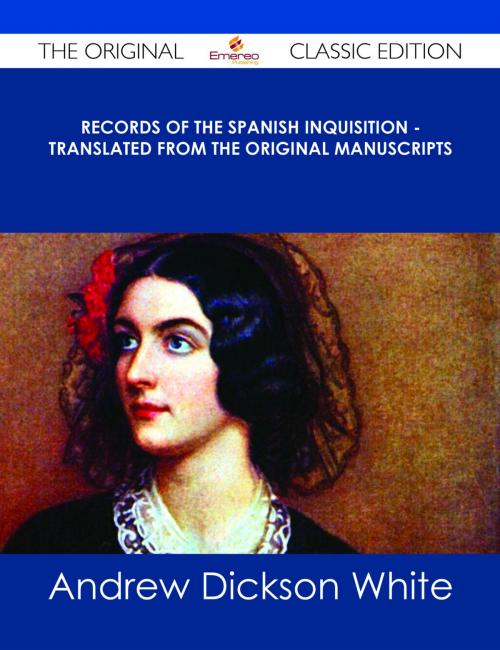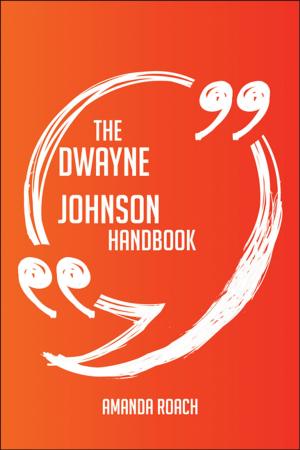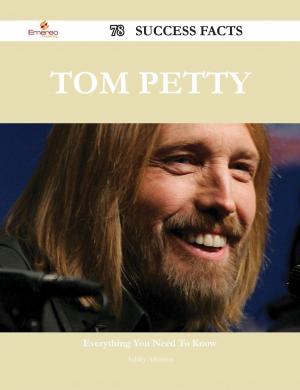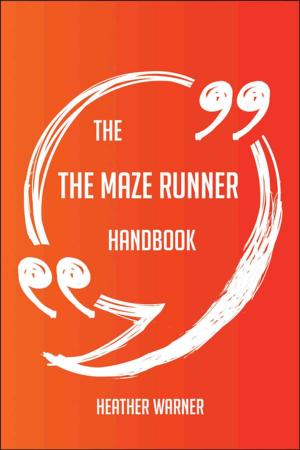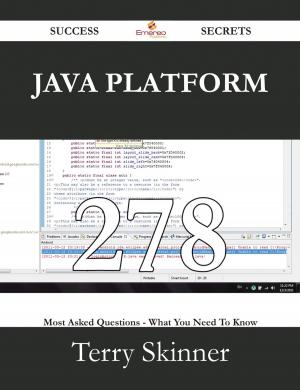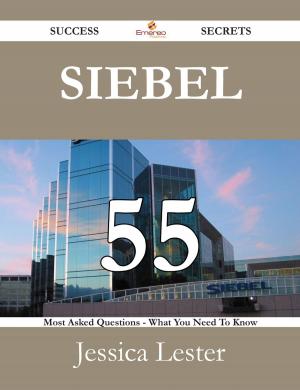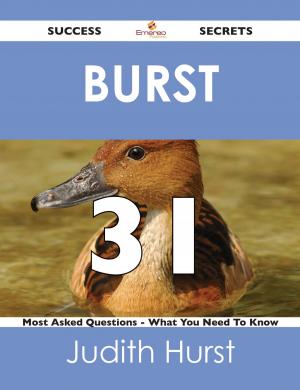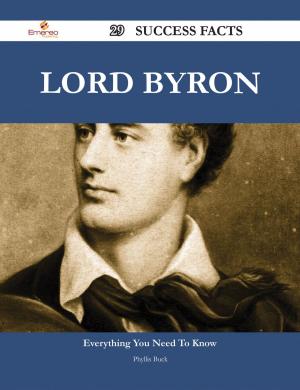Records of The Spanish Inquisition - Translated from the Original Manuscripts - The Original Classic Edition
Nonfiction, Reference & Language, Reference, Fiction & Literature| Author: | Andrew Dickson White | ISBN: | 9781486494521 |
| Publisher: | Emereo Publishing | Publication: | March 11, 2013 |
| Imprint: | Emereo Publishing | Language: | English |
| Author: | Andrew Dickson White |
| ISBN: | 9781486494521 |
| Publisher: | Emereo Publishing |
| Publication: | March 11, 2013 |
| Imprint: | Emereo Publishing |
| Language: | English |
Finally available, a high quality book of the original classic edition of Records of The Spanish Inquisition - Translated from the Original Manuscripts. It was previously published by other bona fide publishers, and is now, after many years, back in print.
This is a new and freshly published edition of this culturally important work by Andrew Dickson White, which is now, at last, again available to you.
Get the PDF and EPUB NOW as well. Included in your purchase you have Records of The Spanish Inquisition - Translated from the Original Manuscripts in EPUB AND PDF format to read on any tablet, eReader, desktop, laptop or smartphone simultaneous - Get it NOW.
Enjoy this classic work today. These selected paragraphs distill the contents and give you a quick look inside Records of The Spanish Inquisition - Translated from the Original Manuscripts:
Look inside the book:
IN the Royal Palace of the Inquisition of Barcelona, on the fourth day of September, one thousand six hundred and thirtyfive, present, the Inquisitor Dr Domingo Abbad y Huerta, officiating alone in his morning audience; having examined the information received against Pedro Ginesta, native of the village of St Quinti, diocese of St Flor, and Joan Mella, of the village of St Maurion, parish of Xauvinar, diocese of Clermont, in the kingdom of France, by occupation both braziers, the same being in custody of the Commissioner of Salas in the prison of Agna Villa,—ordered, that the abovementioned persons be transferred to the secret prison of this palace of the Inquisition, and that their trial be instituted in form; also ordered, that the Commissioner aforesaid be instructed to attest ad perpetuam the evidence of the witnesses, ascertain the identity of the persons whom they depose against, and whether the said prisoners be the persons whom they charge with having eaten bacon on St Bartholomew’s eve, notwithstanding the prohibition; also that the said prisoners, after the business of the deposition is despatched, be conveyed with care by the hands of the several Familiars, to the prison of this Inquisition. ...Answered, falling on his knees, weeping, and beating his breast, that he had committed an offence against our Lord by eating bacon on the eve of St Bartholomew in the village of Semiana, and that it was true he had been told on the day previous, by the hostess of the house where it was done, that the next day was a fast, but not remembering this intimation, he had, while the hostess was gone out of the house to her oven, eaten of the same in company with a certain youth of fourteen or fifteen years of age, a native of the bishopric of Clermont in France, who had come to work with him two days before; and that while they were eating, the hostess returned and again reminded him that it was the fast of St Bartholomew, and they ought not to eat it, upon which they immediately abstained from eating; that they were both arrested and brought on the road to Barcelona under guard of one man, the youth with his hands tied; that on arriving near a wood he escaped notwithstanding the exertions made by the guard, who raised the neighbourhood to search for him; and if in this he had offended our Lord, he begged for pardon and mercy.
About Andrew Dickson White, the Author:
“ During my life, which is now extending beyond the allotted span of threescore and ten, I have been engaged after the manner of my countrymen, in many sorts of work, have become interested in many conditions of men have joined in many efforts which I hope have been of use; but, most of all, I have been interested in the founding and maintaining of Cornell University, and by the part I have taken in that, more than by any other work of my life I hope to be judged. ...^ '. . . while John Brooke's view of a complexity thesis rather than an historical conflict thesis has gained widespread acceptance among professional historians of science, the traditional view remains strong el
Finally available, a high quality book of the original classic edition of Records of The Spanish Inquisition - Translated from the Original Manuscripts. It was previously published by other bona fide publishers, and is now, after many years, back in print.
This is a new and freshly published edition of this culturally important work by Andrew Dickson White, which is now, at last, again available to you.
Get the PDF and EPUB NOW as well. Included in your purchase you have Records of The Spanish Inquisition - Translated from the Original Manuscripts in EPUB AND PDF format to read on any tablet, eReader, desktop, laptop or smartphone simultaneous - Get it NOW.
Enjoy this classic work today. These selected paragraphs distill the contents and give you a quick look inside Records of The Spanish Inquisition - Translated from the Original Manuscripts:
Look inside the book:
IN the Royal Palace of the Inquisition of Barcelona, on the fourth day of September, one thousand six hundred and thirtyfive, present, the Inquisitor Dr Domingo Abbad y Huerta, officiating alone in his morning audience; having examined the information received against Pedro Ginesta, native of the village of St Quinti, diocese of St Flor, and Joan Mella, of the village of St Maurion, parish of Xauvinar, diocese of Clermont, in the kingdom of France, by occupation both braziers, the same being in custody of the Commissioner of Salas in the prison of Agna Villa,—ordered, that the abovementioned persons be transferred to the secret prison of this palace of the Inquisition, and that their trial be instituted in form; also ordered, that the Commissioner aforesaid be instructed to attest ad perpetuam the evidence of the witnesses, ascertain the identity of the persons whom they depose against, and whether the said prisoners be the persons whom they charge with having eaten bacon on St Bartholomew’s eve, notwithstanding the prohibition; also that the said prisoners, after the business of the deposition is despatched, be conveyed with care by the hands of the several Familiars, to the prison of this Inquisition. ...Answered, falling on his knees, weeping, and beating his breast, that he had committed an offence against our Lord by eating bacon on the eve of St Bartholomew in the village of Semiana, and that it was true he had been told on the day previous, by the hostess of the house where it was done, that the next day was a fast, but not remembering this intimation, he had, while the hostess was gone out of the house to her oven, eaten of the same in company with a certain youth of fourteen or fifteen years of age, a native of the bishopric of Clermont in France, who had come to work with him two days before; and that while they were eating, the hostess returned and again reminded him that it was the fast of St Bartholomew, and they ought not to eat it, upon which they immediately abstained from eating; that they were both arrested and brought on the road to Barcelona under guard of one man, the youth with his hands tied; that on arriving near a wood he escaped notwithstanding the exertions made by the guard, who raised the neighbourhood to search for him; and if in this he had offended our Lord, he begged for pardon and mercy.
About Andrew Dickson White, the Author:
“ During my life, which is now extending beyond the allotted span of threescore and ten, I have been engaged after the manner of my countrymen, in many sorts of work, have become interested in many conditions of men have joined in many efforts which I hope have been of use; but, most of all, I have been interested in the founding and maintaining of Cornell University, and by the part I have taken in that, more than by any other work of my life I hope to be judged. ...^ '. . . while John Brooke's view of a complexity thesis rather than an historical conflict thesis has gained widespread acceptance among professional historians of science, the traditional view remains strong el
